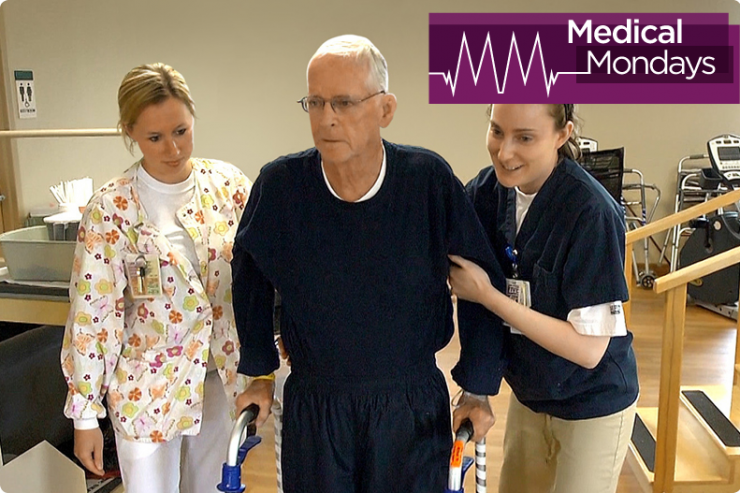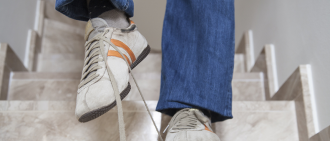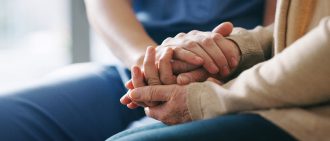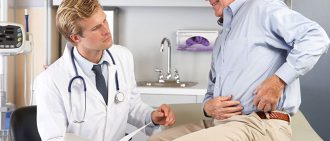Falls are the number one cause of injury in adults over age 65. In fact, more than 1/3 of people age 65 and older fall each year, which often result in serious injuries, including head injuries, lacerations, and hip fractures.
While falls may be common, it’s estimated that many can be prevented. In this segment, you’ll learn about simple methods to help prevent falls, as well as where to seek care for someone who has suffered a fall.
Simple Methods To Help Prevent Falls
- Exercising regularly
- Vision screenings
- Having medications reviewed by a doctor
- Checking home for safety
-
6 Tips for Preventing and Handling Falls
According to the CDC the leading cause for injuries among older adults are falls. An unfortunate tumble may result in serious injuries and lead to long-term care or even a stay in a rehabilitation facility. Check out these tips to help prevent tripping, as well as what you should do in case of a fall.Learn More
-
Recognize Common Health Concerns in Seniors Early
As we age, our bodies start to weaken and change. Years of use cause a lot of wear and tear on the joints, bones, and muscles. For older adults their bodies just aren’t what they used to be. Simple day-to-day activities may become a challenge. Read on to see how you can take care and precautions to manage the most common health concerns.Learn More
-
Feeling Faint? It Could Be Postural Hypotension
Most of us will experience an occasional “head rush” when we stand up too quickly. However if you find yourself regularly feeling dizzy or lightheaded, you may have a form of low blood pressure called postural hypotension. Learn more about the potential causes as well as prevention tips.Learn More
-
The Threat of Common Fall-Related Injuries
For most of us, a stumble is nothing more than an embarrassing moment. For older adults, however, a fall can be very damaging. Years of wear and tear on their bodies, means their bones and muscles have been weakened. Hip fractures are the most common fall-related injury and can lead to further complications. Read on to see how you can prevent potential injuries.Learn More
-
Take Steps to Prevent Falls
Older adults are more prone to falls and fall-related injuries, which can result in decreased mobility and other complications. A simple stumble can result in surgery, medication and physical therapy. Take these steps to help minimize the risk of falling.Learn More





